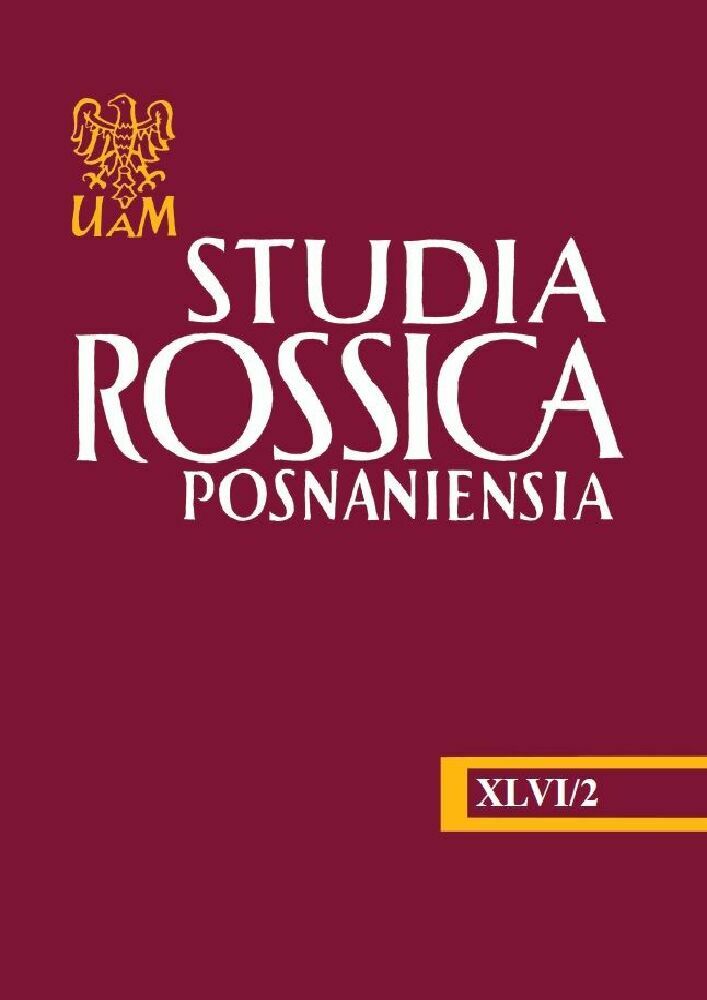Abstract
The article discusses the features of the functioning of phraseological units and other stable combinations in the headings of the media texts of Belarusian and Russian online newspapers. We analyze the pragmatic function of intertexts and present them as pointers to certain types of speech acts. The intent of the addressee is the most important factor in creating a text. It is usually reflected, directly or indirectly, in every communication product. The main purpose of media texts (or a hint of it) is contained in headings, especially when they are intertextemes, various renewable speech units that we classify according to the types of speech acts: representatives, rogatives,directives, commissives, contactives, declarations and expressives. Such headings are best used to perform a pragmatic function because they retain an emotional and evaluation component that stimulates communication with the mass recipient. These stable units (phraseological locutions, winged expressions and aphorisms, paroemias and compound terms) comprise the background knowledge of the participants in communication and are therefore productive language tools used by journalists in their practice. And very often the intertextemes are transformed or updated. Employees of “BelGazeta” and “Rossiyskaya Gazeta” use both the general phraseological fund of Belarusians and Russians and the national language means in web media texts. The headlines of “BelGazeta” have
a distinctive feature, as they mix graphic and lexical systems of different languages (Russian, Belarusian,
English and, less frequently, Ukrainian). This fact can be explained, firstly, by the tendency to widely spread the features of the conversational speech of Belarusians, trasyanka, in book speech styles. And, secondly, by the address policy of the publication of the named newspaper, which is aimed at the mass Belarusian reader. Following the use of occasionalisms, updated stable expressions, we also call the above feature a specific method of influencing the addressee.
References
Bogdanov, Valentin V. Predloženie i tekst v soderžatelʹnom aspekte. Sankt-Peterburg, Filologičeskij fakul’tet Sankt-Peterburgskogo gosudarstvennogo universiteta, 2007.
Duskaeva, Liliâ R., red. Medialingvistika v terminah i ponâtiâh: slovarʹ-spravočnik. Moskva, Flinta, 2018.
Erofeeva, Elena V. Pragmatičeskie aspekty rečevyh aktov različnoj kommunikativnoj napravlennosti v sovremennom francuzskom âzyke. Moskva, AGBOU VPO „Urgpu”, 2013.
Formanovskaâ, Nataliâ I. Rečevoe obŝenie: kommunikativno-pragmatičeskij podhod: učebnoe posobie. Moskva, Russkij âzyk, 2002.
Kazak, Mariâ Û., Anna A. Mahova. „Raznotipnye intertekstemy v žurnalistskom tekste: opyt funkcionalʹnogo opisaniâ”. Medialingvistika, 2 (8), 2015, s. 93–103.
Kožina, Nataliâ A. Zaglavie hudožestvennogo proizvedeniâ: struktura, funkciâ, tipologiâ (na materiale russkoj prozy` XIX–XX vv.). Dissertaciâ na soiskanie učenoj stepeni kandidata filologičeskih nauk. Moskva, 1986.
Kuzʹmina, Natalʹâ A., red. Sovremennyj mediatekst: učebnoe posobie. Moskva, Flinta, 2014.
Maslova, Alina Û. Vvedenie v pragmalingvistiku: učebnoe posobie. Moskva, Flinta, 2010.
Menŝikova, Ûliâ N. Rečevaâ kommunikaciâ: pragmatičeskij aspekt. Avtoreferat dissertacii na soiskanie učenoj stepeni kandidata filologičeskih nauk. Omsk, Omskij gosudarstvennyj pedagogičeskij universitet, 2008.
Nekrasov, Dmitrij V. „Funkcionalʹno-pragmatičeskie harakteristiki zagolovkov novostnyh tekstov v internete (na primere sovremennyh informagentstv)”. Filologičeskie nauki. Voprosy teorii i praktiki, 1 (31)/1, 2014, s. 117–123.
Parzulova, Marianna. Medialingvistika: učebnoe posobie. Trnava, Univerzita sv. Cyrila a Metoda, 2016.
Peškova, Ûliâ V. „Funkciâ zagolovkov nemeckoâzyčnyh novostnyh tekstov”. Vestnik Leningradskogo gosudarstvennogo universiteta im. A.S. Puškina, 2012, s. 134–140.
Rudnev, Vadim P. Ènciklopedičeskij slovarʹ kulʹtury XX veka. Moskva, „Agraf”, 2001.
Taûpova, Olʹga I. „Pragmatičeskij potencial zagolovkov v sovremennyh publicističeskih tekstah”. Vestnik Voronežskogo gosudarstvennogo universiteta. Seriâ: Lingvistika i mežkulʹturnaâ kommunikaciâ, 4, 2015, s. 21–26.
Trofimova, Nèlla A. Èkspressivnye rečevye akty v dialogičeskom diskurse. Semantičeskij, pragmatičeskij, grammatičeskij analiz. Sankt-Peterburg, Izdatelʹstvo VVM, 2008.
Vitgenštejn, Lûdvig. „O dostovernosti”. Voprosy filosofii, 2, 1991, s. 67–120.
License
THE ARTICLES ARE PUBLISHED UNDER THE CREATIVE COMMONS LICENCE:
Attribution-NonCommercial-ShareAlike 4.0 International License.
Authors of texts accepted for publication in “Studia Rossica Posnaniensia” are required to complete, sign and return to the editor's office the Agreement for granting a royalty-free license to works with a commitment to grant a Creative Commons sub-license.
Under the agreement, the authors of texts published in “Studia Rossica Posnaniensia” grant the Adam Mickiewicz University in Poznań a non-exclusive, royalty-free license and authorize the use of Attribution-NonCommercial-ShareAlike 4.0 International (CC BY-NC-SA 4.0).
The authors retain the right to continue the free disposal of the work.
Internet users are entitled to use works published in “Studia Rossica Posnaniensia” since 2016, for non-commercial purposes only, under the following conditions: https://creativecommons.org/licenses/by-nc-sa/4.0/
Adam Mickiewicz University in Poznań retains the right to magazines as a whole (layout, graphic form, title, cover design, logo etc.).

